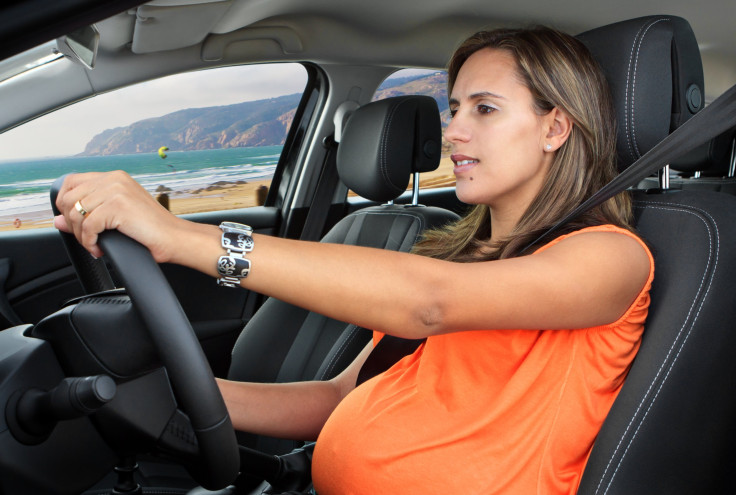Driving While Pregnant: Women In Second Trimester 42% More Likely To Crash

Some question the purview of medicine over gun violence and car crashes. But most doctors count complex behaviors involving technology as risk factors relavant to human health. Now, researchers say "driving while pregnant" poses a short-term threat to women during their second trimesters of pregnancy, as physical and mental distractions take their toll.
In new findings, Donald Redelmeier of the University of Toronto says second-trimester pregnant women incur a 42 percent higher likelihood of involvement in serious multi-car crashes. The effect was seen across socioeconomic and racial groups, as reported Monday in the Canadian Medical Association Journal. Still, he and his colleagues stopped short of recommending that pregnant women stay off the road, calling instead for increased mindfulness of the risk.
“It amounts to about a 1 in 50 statistical risk of the average women having a motor vehicle crash at some point during her pregnancy,” Redelmeier said in a university press release.
Interestingly, the researchers acknowledged that the Canadian women in the study had shown themselves as far from perfect while motoring around during a three-year baseline period prior to their pregnancies. Among the half-million women who gave birth in Ontario during the five-year period between 2006 to 2001, nearly 7,000 had experienced serious crashes for a rate of 4.55 crashes per 1,000 women per year. However, the risk jumped by 42 percent from that baseline before falling back to normal during the third trimester of pregnancy.
Downplaying blatant sexism, Redelmeier and his colleagues surmised that this group incurred greater risk on the road not because of their gender but because of their relatively youthful ages, regardless of pregnancy. Moreover, women in their second trimesters typically report feelings of fatigue, distraction, nausea, and other maladies that quite logically lower their ability to focus on driving-related mental tasks. And without realizing the heightened risk, such women experience a greater susceptibility to injury or death while driving.
The collision rate fell from that baseline of 6.47 crashes per 1,000 women during the first trimester of pregnancy to 4.33 before jumping to 7.66 crashes during the second trimester. The only real variation seen among such pregnant women related to where they lived, given that city drivers incurred a higher rate of crashes.
The researchers recommended that doctors discuss the heightened risk as a routine aspect of prenatal care.
Source: Redelmeier, Donald A., May, Sharon C., Thiruchelvam, Deva, Barret, Jon F. Pregnancy and the risk of a traffic crash. CMAJ. 2014.



























